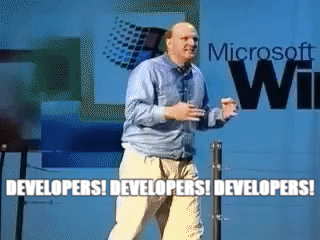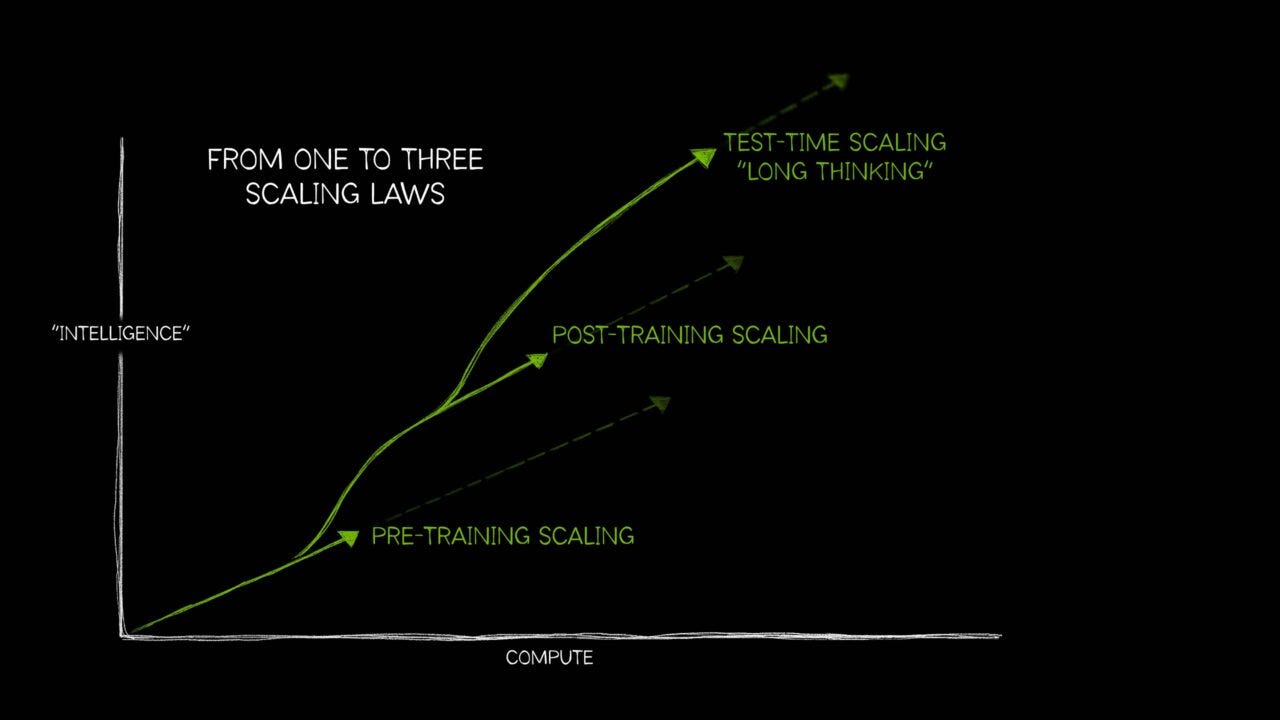AI: The 'Frenemies' nature of the AI Coding space. RTZ #806
...frenzied dynamics in a white hot AI area
The current AI frenzied growth, partnerships, and competitive dynamics around the white hot area of AI Coding, resembles the ‘frenemies’ environment in AI GPU Chips Infrastructure.
It’s been the one area of LLM AIs that’s delivering the clearest and fastest AI value proposition at scale. For tens of millions of developers worldwide. And wannabe AI developers who don’t have the full software coding chops. It’s a dynamically changing and growing area of this nascent AI Tech Wave.
Just as Nvidia is relying on the Mag 7s for almost half its frenetically growing revenues of late that propelled it to the $4 trillion+ Mount Everest market cap. While most of their top customers, Amazon, Microsoft, Google, Meta, OpenAI, Anthropic et al, or also fanatically building their own AI GPU chips.
There’s a similar echo of that dynamic in the AI Coding space.
The Information lays it out in “AI Coding Startups Like Cursor Have Gotten Too Rich”:
“The companies are growing very fast, but high costs and tough competition may mean weak profits.”
“Investors have embraced vibe coding as the next big thing in artificial intelligence. They are pouring cash into fast-growing companies offering coding assistants that can speed the work of software engineers—or potentially replace them.”
Of course there are pros and cons to this growth story:
“That optimism may be shortsighted. The companies that make AI models, such as OpenAI and Anthropic, are developing their own coding assistants, creating serious competition. Most coding assistant startups rely on these same AI giants to run their models, which could crimp profitability. These companies may also struggle to differentiate themselves, which could lead to high churn rates.”
The Star of the AI Coding show currently is Anysphere with its Cursor offering:
“Those concerns haven’t deterred investors in Anysphere or other startups. Anysphere, which makes the popular coding assistant Cursor, is one of the fastest-growing software startups ever. It commanded 20 times its annualized revenue in its last known fundraising in June. On the lower end, StackBlitz, the company behind Bolt, an AI coding tool for nonengineers, was reportedly raising funds at a $700 million valuation earlier this year, or 18 times what it makes in annualized revenue.”
The reason is plain and simple:
“My broad feeling on the coding assistant space is that it’s hot right now because it is the thing that we can all point to and show that AI actually produces something,” said Jackson Ader, software equity analyst at KeyBanc Capital Markets. Other uses for AI, such as summarizing content or helping with writing, are hard to measure and therefore value. “Code is very definable and trackable and easily understood,” he added.”
Thus the expected result:
“Fast Growth, Surging Valuations”
“Demand for coding assistants that can help developers write, edit and deploy code is robust, at least for now. Cursor’s annualized revenue grew from $50 million last November to $500 million in June, and its valuation quadrupled. Google last month bought the intellectual property of Windsurf, a Cursor competitor, and hired its CEO. The tech giant paid $2.4 billion, about 30 times the startup’s annualized revenue at the time.”
The financial aspects of AI Coding business are less attractive given their dependency on the big LLM AI companies. And the associated variable costs, as their users ramp, as I’ve discussed.
“The true measure of a company’s success is profitability, and coding assistants may struggle to attain that goal. That’s because most of them pay a fee to Anthropic or OpenAI to use the AI models that underpin their apps. For reference, The Information has reported that AI search startup Perplexity paid $8 million in 2024, nearly one-quarter of its revenue, to Anthropic and OpenAI for use of their models in the answers it displays to its users.”
“Software companies that depend on other firms to make revenue can have lower margins than the overall industry. One example is direct marketing software firm Twilio. Every time one of Twilio’s customers sends a text message through its platform, Twilio has to fork over a portion of what it earns to a telecom provider. That’s a big reason why it has a gross margin of around 50%, lower than the 70%-plus median for enterprise software companies.”
The ‘Frenemies’ specifics in AI Coding are also worth noting:
“The situation is somewhat worse for the coding assistants because the AI foundation model companies they are paying, OpenAI and Anthropic, are also their competitors. Anthropic offers its own coding assistant tool, Claude Code, which as of last week was nearing $400 million in annualized revenue, double the sum from just a few weeks prior. OpenAI’s Codex product serves a similar purpose, and Google has its own agent for developers, built on top of its Gemini AI model. Even Microsoft’s Github Copilot—one of the most widespread AI coding agents, which some 20 million people have tried over its lifetime, according to the company’s CEO—runs on Anthropic and OpenAI models.”
As a result, users are trying all these services in record numbers, with developers trying to figure out what services are worth it in the longer term.
Thus ‘Huge Churn’ rates are another concern.
Furthermore, domain specific software companies are also exploring building their own AI Coding software infrastructure for their core businesses.
“Software companies are also rushing to produce their own coding assistants. Figma, which just had a blockbuster initial public offering, touted its pivot to AI. Its coding agent, Figma Make, could become the go-to for the designers who use its software already, stealing business away from companies that just focus on coding agents.”
“Agents such as Lovable and Bolt “have grown really fast, and the churn rates are huge,” said venture capital investor Tomasz Tunguz. For now, that’s largely a result of how nascent these tools are, meaning people are still just experimenting with them. Agents in Lovable and Bolt’s category, however, might struggle more with churn in the long term because coding isn’t an essential part of their users’ job functions. Already some data suggest those two companies have worse retention rates than Cursor and Windsurf.”
Thus the current enthusiasm on AI Coding Valuations will likely ebb and flow:
“One potential outcome is that the valuations for coding assistant companies will fall and become comparable to those of publicly traded companies like GitLab, which makes software to help developers write and manage code, partly by using AI. The company trades at 6.3 times next year’s revenue—far below the levels at which Bolt, Lovable, Cursor and another widely used tool, Replit, raised funds. GitLab may not be growing as fast as the startups, but it’s no slouch—its 30% revenue growth is among the fastest of all large software firms.”
And of course there remains the possibility of M&A, as we saw after OpenAI’s attempt to buy AI Coding wonder Windsurf for $3 billion, only to have the deal fall apart due to ongoing negotiatins with partner Microsoft on IP Issues and other matters. And then of course having Google swwop in to buy the Founder team for $2.4 billion, and the rest going to AI Coding company Cognition for the remaining assets and people.
“Tunguz reckons one of the foundation model providers will eventually buy Cursor for a similar multiple to GitLab’s. OpenAI has held talks with Cursor in the past, and it tried to buy Windsurf before tension around its relationship with Microsoft torpedoed a deal. Meta Platforms, which makes its own LLMs but hasn’t built a coding agent, might also be interested in scooping one of these businesses up.”
This may develop in the other direction too, as AI Scales it technologies in multiple directions:
“A better bet for firms trying to crack this market might be to build their own coding-focused AI foundation models, the approach firms such as Cognition are taking. Cognition markets its AI coding agent, Devin, as a direct replacement for a software engineer. Goldman Sachs is testing the product, and the bank’s chief information officer, Marco Argenti, has been referring to Devin as a “new employee.” Another company trying to build its own AI coding models is Poolside.”
But all of this is in the very early days. With multiple parties and stakeholders feeling their way through the rapidly changing AI tech environment.
“It’s still far from clear whether AI coding agents will actually replace human developers on a large scale or just make them more efficient. Either way, Anthropic and OpenAI look to be the best positioned in the long run. It’s become something of a parlor game to pick winners among the startups or to mix and match companies in different parts of the coding stack to create new competitors.”
We’ve seen similar degree of rapid moves and changes in the early phases of earlier tech waves in the PC, Internet, and Mobile environments.
The difference in this AI Tech Wave is that it’s happening at a faster, more compressed time frame. And the dollar numbers are far bigger given the global nature and size of the AI market.
But in the meantime, AI Coding remains the sector to watch in the near term. Stay tuned.
(NOTE: The discussions here are for information purposes only, and not meant as investment advice at any time. Thanks for joining us here)








